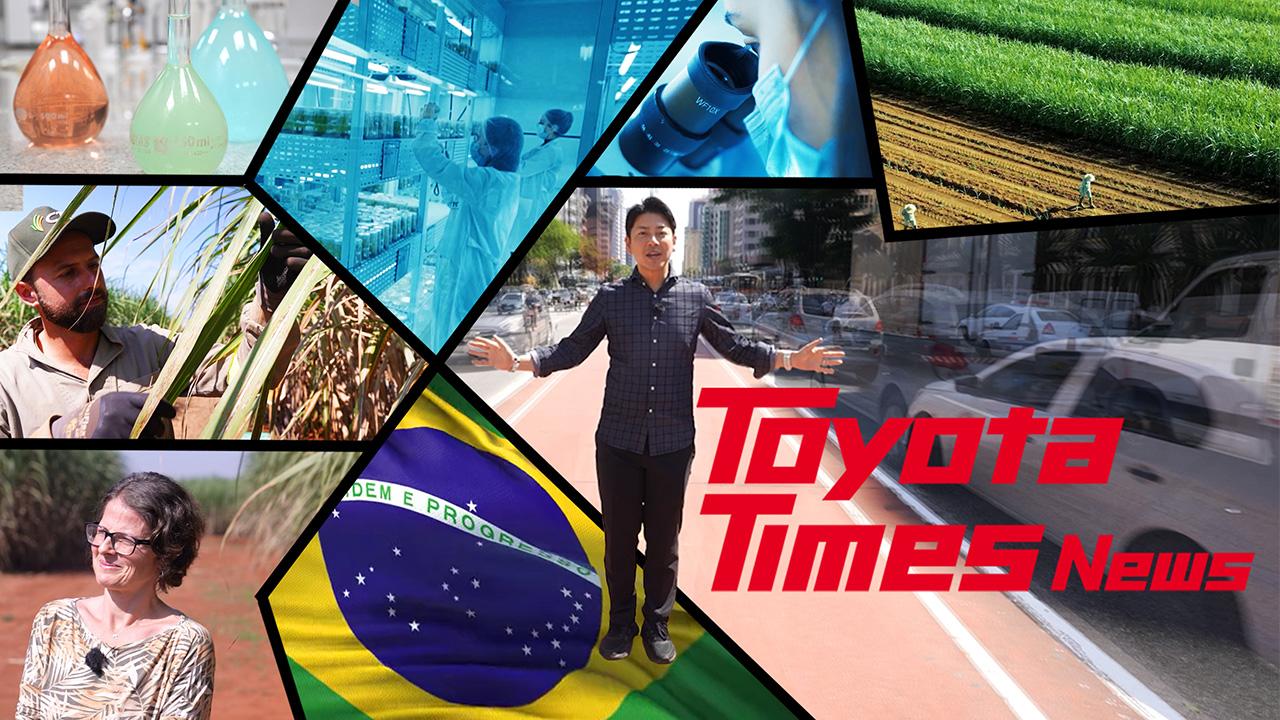
Half a world away from Japan, Brazil is powering cars with special fuels that take advantage of local characteristics. Here is a report on the country's unique path to decarbonization.

For this week’s episode, Toyota Times News heads to Brazil.
Standing amid the busy traffic of a main street, Yuta Tomikawa comments, “Surprisingly, I can’t smell much gasoline.”
The reason is sugarcane, the raw ingredient for producing the bioethanol that fuels many Brazilian cars.
Although the fuel emits CO2 through engine combustion, these quantities are offset by CO2 absorbed in the process of growing sugarcane. With net-zero atmospheric emissions, bioethanol is attracting considerable interest as a carbon-neutral fuel.
Though little-known in Japan, flex-fuel vehicles are commonly sold in Brazil. We report on the country’s latest efforts in charting its own path to decarbonization.
Breathing easier on busy streets—Brazil’s unique fuel mix
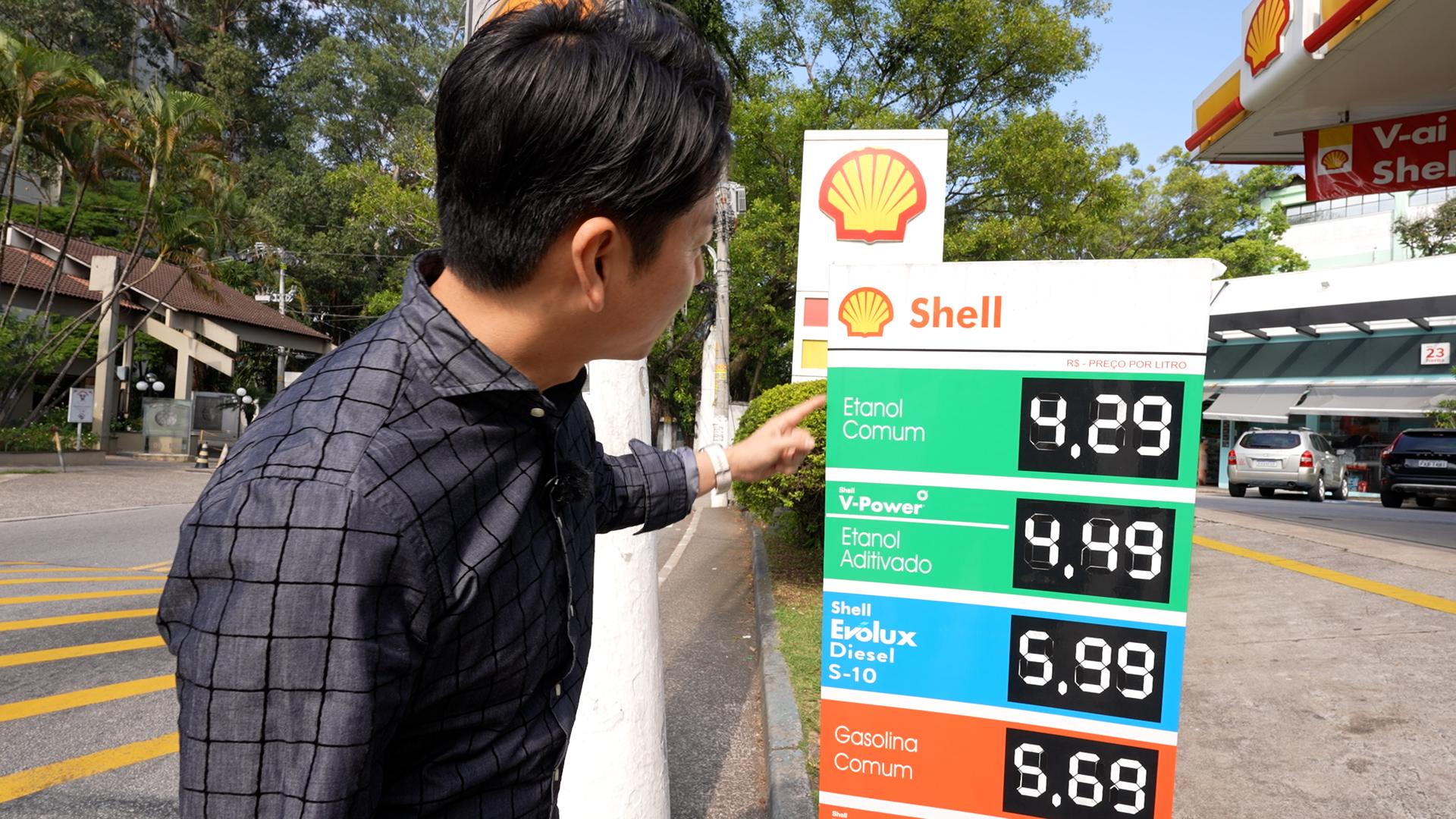
Gas stations offer ethanol alongside gasoline and diesel. Many customers we approached were filling up with this affordable option.
In Brazil, where ethanol is promoted by national policy, even the gasoline is not just gasoline.
Sugarcane’s greater potential—Decarbonizing electricity and hydrogen
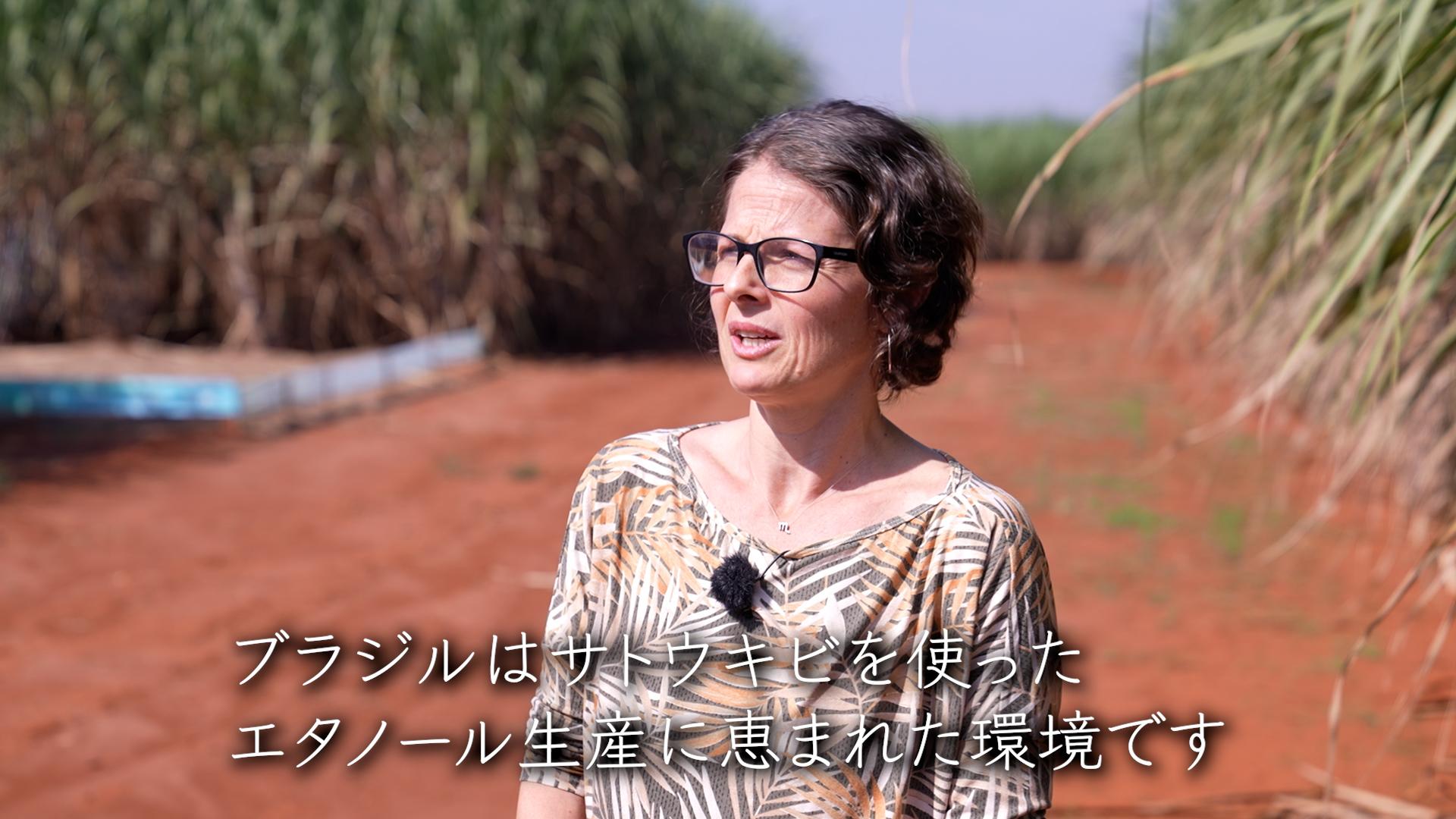
Sugarcane-derived bioethanol has already gained widespread acceptance in Brazil. As it happens, it also offers further possibilities for decarbonizing automobiles beyond simply fueling engines. We explore sugarcane’s hidden potential.
A 45-billion-yen investment—President’s vision for next year’s model
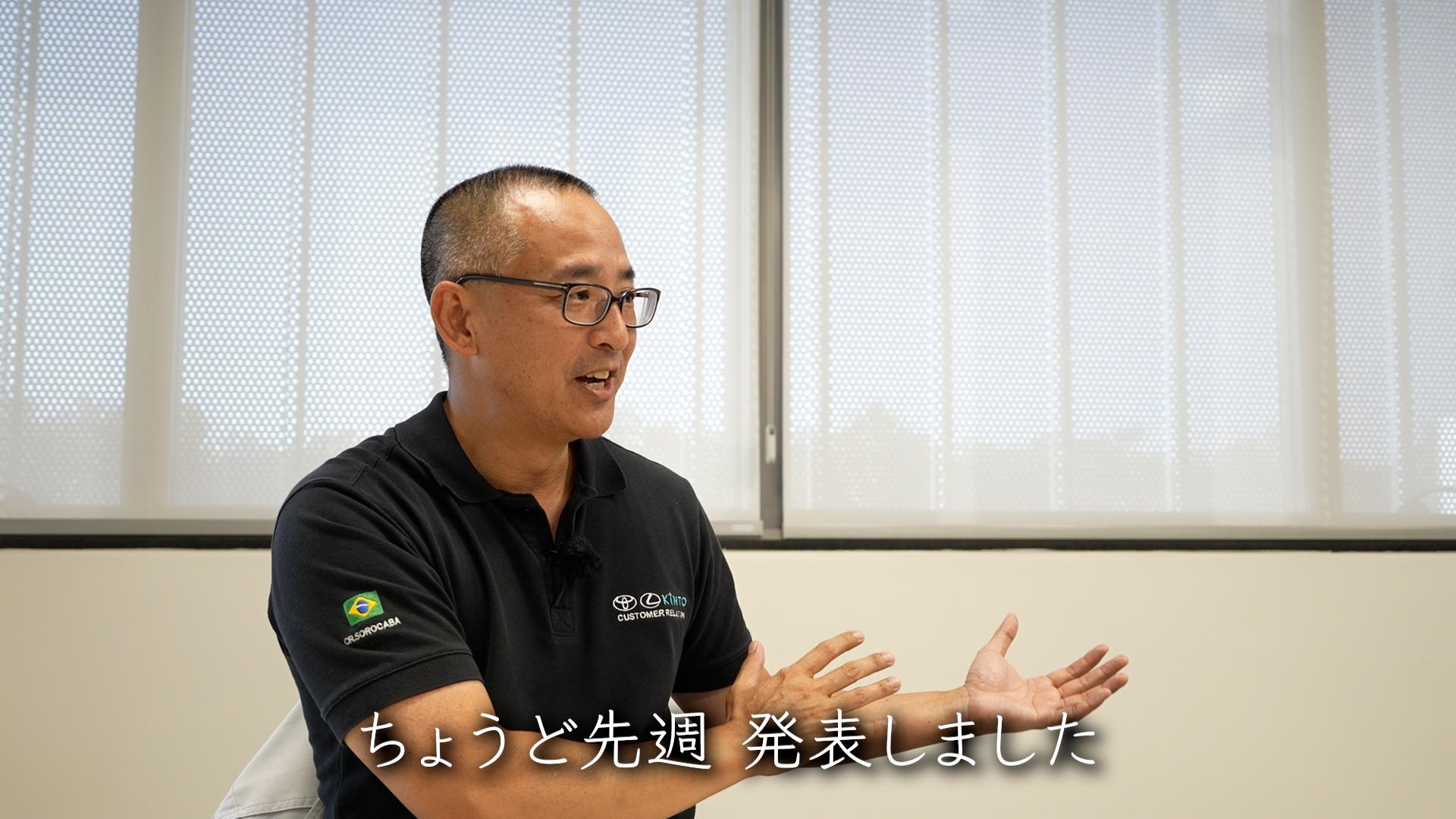
Toyota do Brasil has announced plans to produce a compact flex-fuel hybrid vehicle (HEV) in 2024 for export to 22 countries.
The investment totals 45 billion yen. We spoke in depth with President Rafael Chang about the local vision for carbon neutrality.
Employee café serves up traditional Brazilian feijoada
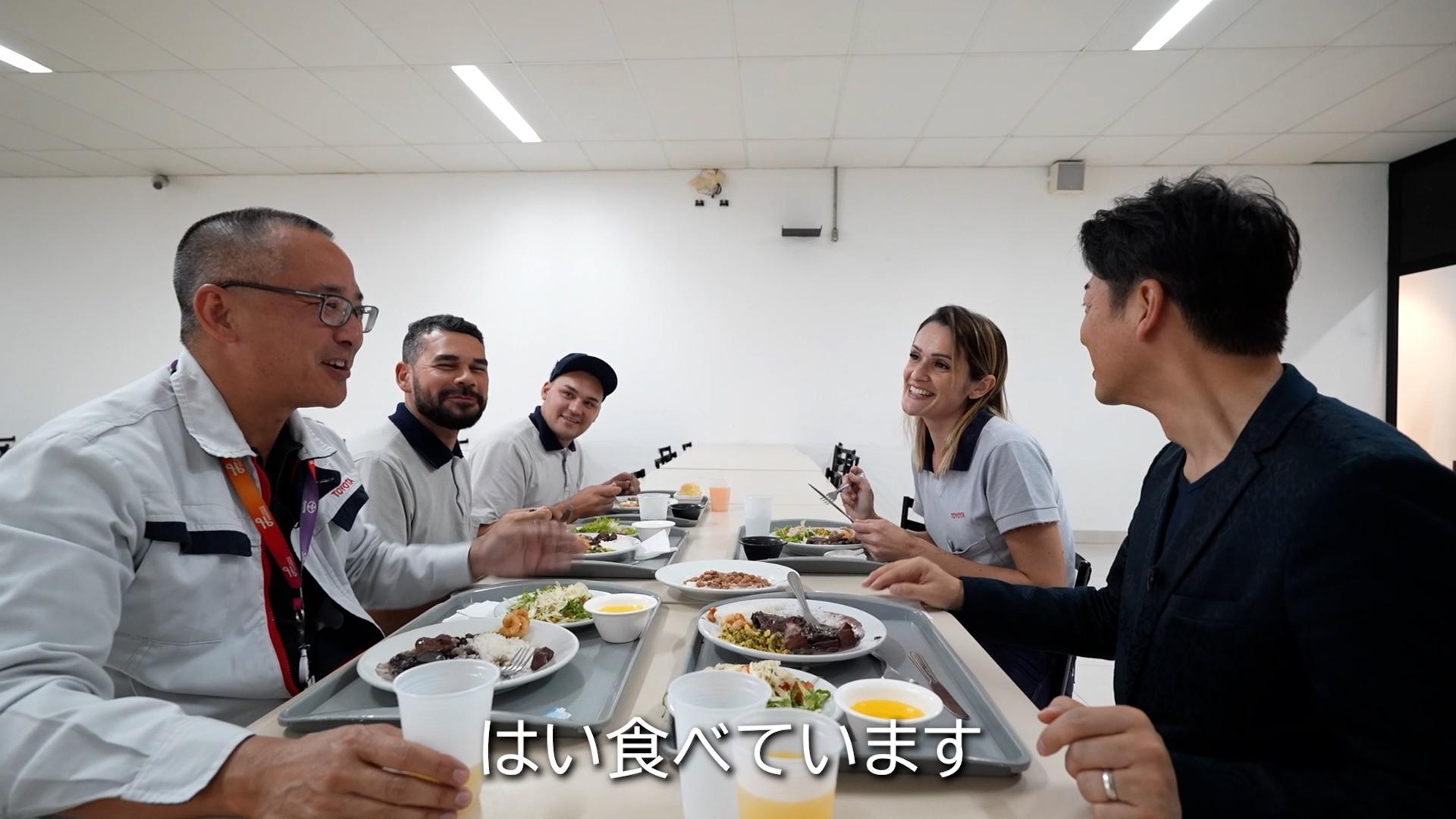
The next installment of our feature on Toyota staff cafeterias also comes from Brazil. Tomikawa visits a dining area where the president and employees share lunch around the same table. He is treated to feijoada, a traditional dish that appears on the menu once a month.
00:33 Breathing easier on busy streets—Brazil’s unique fuel mix
04:43 Decarbonizing with sugarcane—Stunning advances in genetic technology
09:48 Back in Japan, disaster-affected areas also embrace biofuels
12:13 Sugarcane’s greater potential—Decarbonizing electricity and hydrogen
13:35 Japanese & Brazilian developers team up on world’s first flex-fuel HEV
16:52 A 45-billion-yen investment—President’s vision for next year’s model
19:35 The latest decarbonization project—Industry and academia build Brazil’s future
21:26 Employee café serves up traditional Brazilian feijoada

